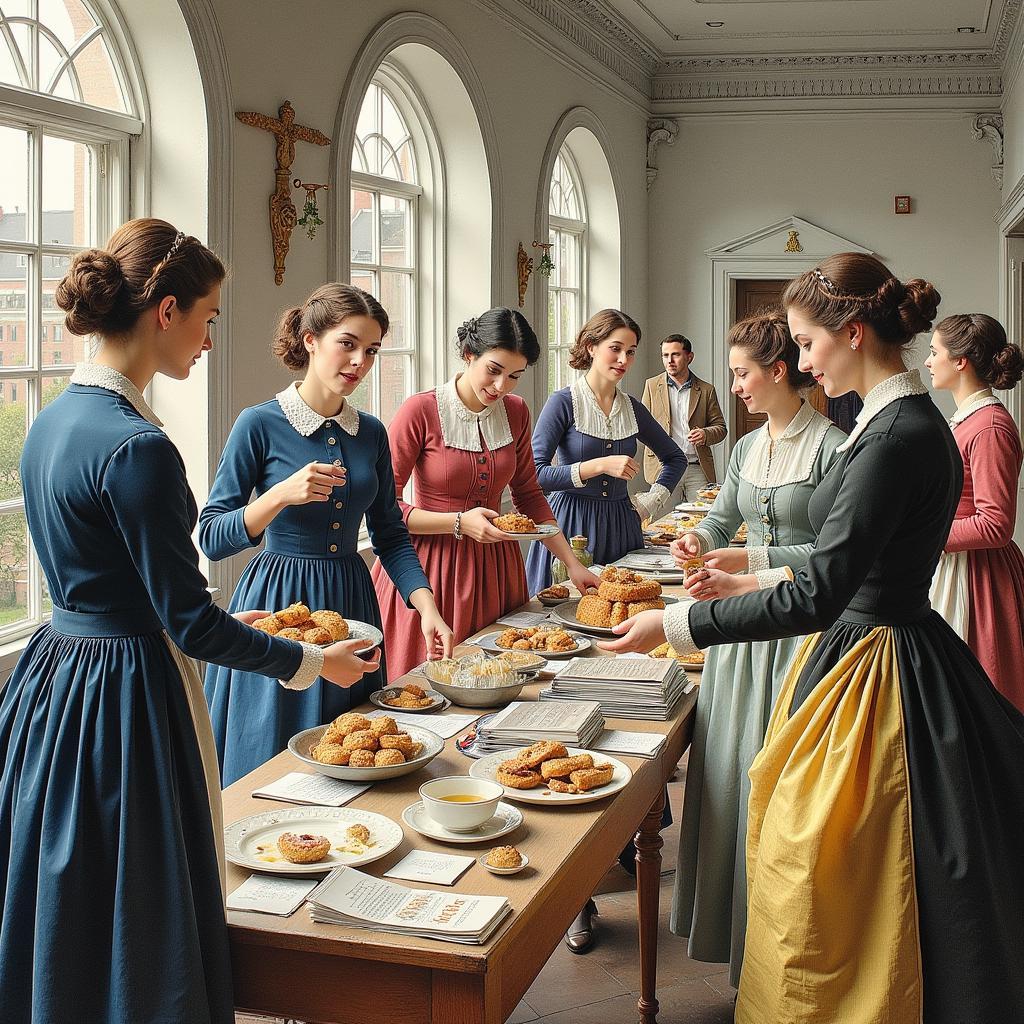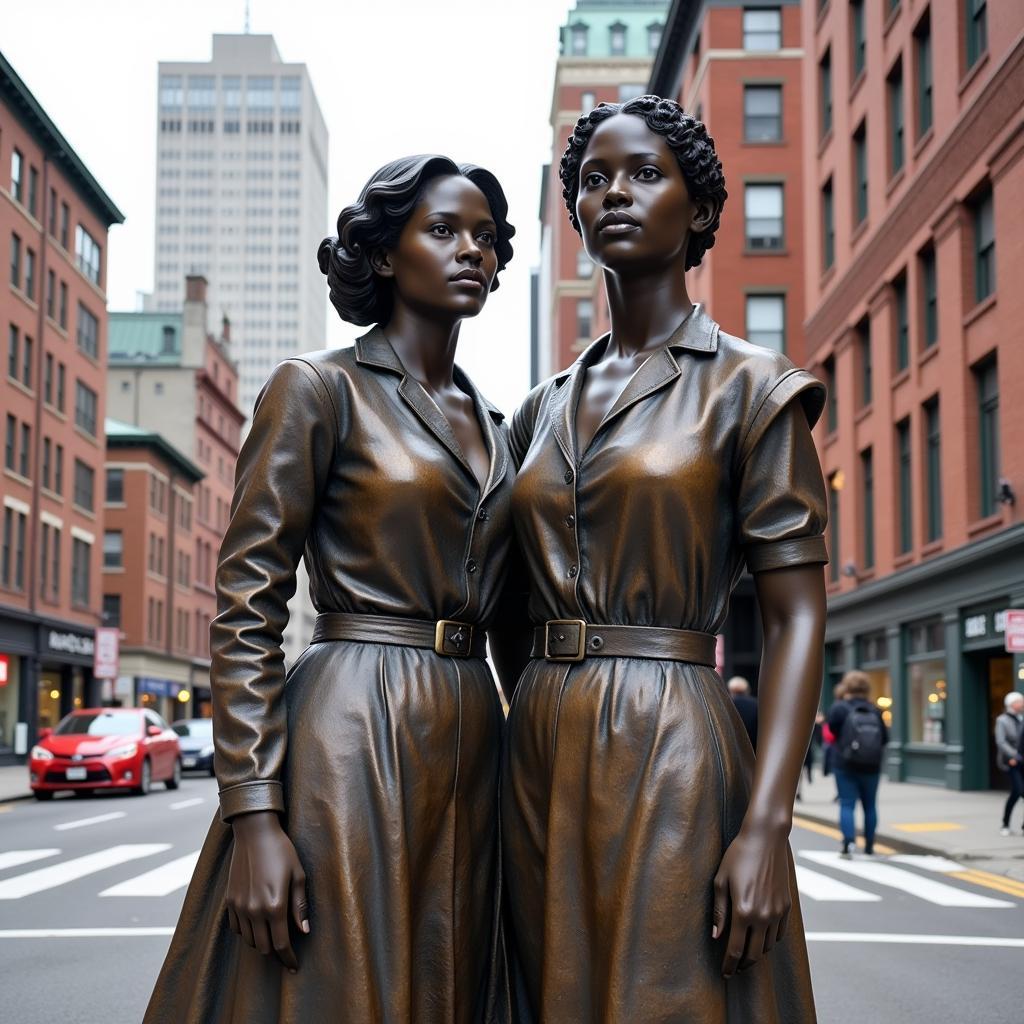Founded in 1833, the Boston Female Anti-Slavery Society was a beacon of hope and resistance during one of America’s darkest chapters. These courageous women, driven by unwavering conviction and compassion, challenged the status quo and ignited a movement that would forever alter the course of history.
 A depiction of the Boston Female Anti-Slavery Society holding a meeting
A depiction of the Boston Female Anti-Slavery Society holding a meeting
A Society Forged in Faith and Fury
The Boston Female Anti-Slavery Society emerged from a deep-seated belief in the inherent equality of all human beings. Fueled by religious ideals and the burgeoning abolitionist movement, these women refused to be silenced on a matter they deemed a moral imperative. The Society, comprised of both black and white women, united under a shared vision of a just and equitable world, free from the shackles of slavery.
Their fight was fraught with challenges. Public speaking for women was considered taboo, and the Society faced harsh criticism and even threats of violence. Yet, they persisted, organizing meetings, publishing anti-slavery literature, and petitioning the government for change.
Amplifying Marginalized Voices
The Boston Female Anti-Slavery Society provided a crucial platform for formerly enslaved individuals to share their harrowing experiences. These firsthand accounts, imbued with pain and resilience, exposed the brutal realities of slavery and helped sway public opinion. Figures like Frederick Douglass, a prominent abolitionist and orator, found an audience eager to listen and act within the Society.
 Members of the Boston Female Anti-Slavery Society organizing a fundraising bazaar
Members of the Boston Female Anti-Slavery Society organizing a fundraising bazaar
A Legacy of Courage and Activism
The Boston Female Anti-Slavery Society’s impact extended far beyond its years of operation. Their unwavering dedication to justice helped shift societal norms and contributed to the growing momentum of the abolitionist movement. Their legacy serves as a powerful testament to the potential of collective action and the importance of speaking out against injustice.
FAQs
Who were some of the key figures in the Boston Female Anti-Slavery Society?
Prominent members included Maria Weston Chapman, Lydia Maria Child, and Sarah Parker Remond. These women played instrumental roles in shaping the Society’s direction and amplifying its message.
What were some of the key activities of the Boston Female Anti-Slavery Society?
The Society organized meetings, published and distributed anti-slavery literature, raised funds to support the Underground Railroad, and petitioned the government for abolition.
 A monument commemorating the Boston Female Anti-Slavery Society
A monument commemorating the Boston Female Anti-Slavery Society
How did the Boston Female Anti-Slavery Society contribute to the abolition of slavery?
The Society played a vital role in raising awareness about the horrors of slavery, providing a platform for formerly enslaved people, and advocating for political change. Their efforts, along with other abolitionist groups, contributed significantly to the eventual abolishment of slavery in the United States.